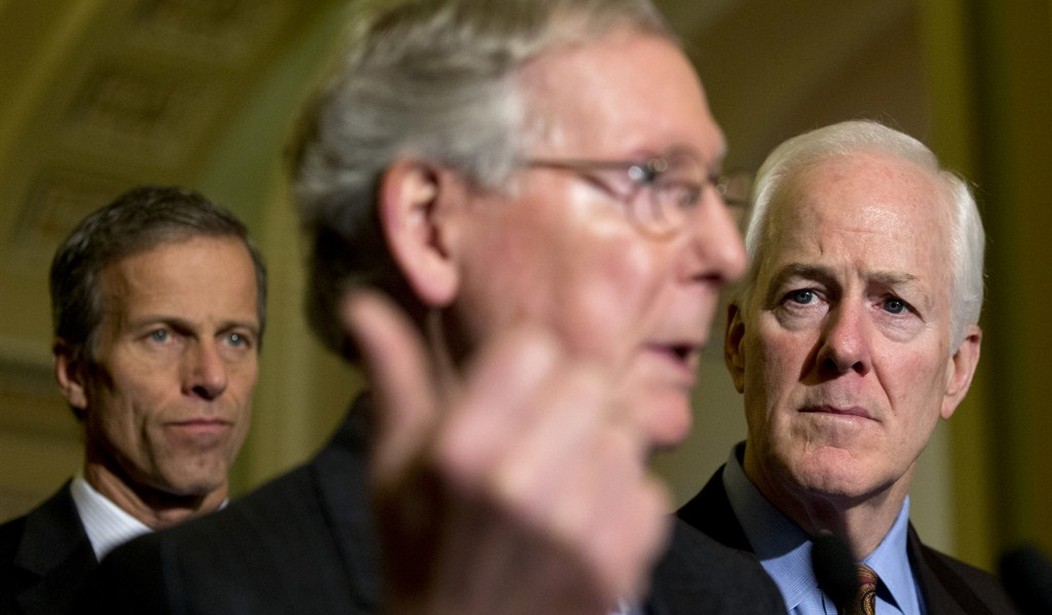Ever since Harry Reid's Democratic majority blew up decades of precedent to significantly weaken the filibuster in order to grease the skids for President Obama's left-wing judicial and executive appointments, some conservatives have wondered if the GOP would answer in kind upon regaining the majority. On Wednesday's edition of the
Advertisement
Thune says Senate Republican leadership is weighing the option of changing the Senate rules to prevent Democrats from filibustering motions to proceed to even considering or debating appropriations (i.e., spending) bills. Despite Mitch McConnell's far more productive approach to amendment votes, Harry Reid's Democratic minority has obstructed votes on everything from the Iran deal, to veterans spending, to funding for our troops. In the latter two cases, Democrats were "holding hostage" these appropriations bills (even at agreed-upon levels) as leverage for higher government spending elsewhere. When I pressed Thune on process, he said his hope is that Republicans will rally enough Democratic votes behind this step so that the rule change could be accomplished under regular order. But he did not rule out a Reid-style "nuclear" maneuver, in which the majority effectively breaks the Senate rules to change the rules under a simple majority vote. Thune's office reached out and directed me
Recommended
Advertisement
Senate Majority Leader Mitch McConnell (R-Ky.) is opening the door to changing the filibuster in response to growing pressure from Republicans angered that Democrats have blocked legislation from reaching the White House. McConnell has appointed a special task force to explore changes to the filibuster rule and other procedural hurdles — including whether to eliminate filibusters on motions to proceed to legislation. That’s a tactic the minority often uses to shut down a bill before amendments can be considered. McConnell has tapped his close ally, Sen. Lamar Alexander (R-Tenn.), and Senate Rules Committee Chairman Roy Blunt (R-Mo.) to form a task force with Sen. James Lankford (R-Okla.) and two other freshmen to weigh various reforms. They hope to implement the changes at the start of next year. “We’re going to take a serious look at whether Senate rules ought to be changed in order to make the Senate work more effectively,” Alexander said. “A number of the new senators have come in looking around saying, ‘Why are we doing things this way and not that way,’ ” he added. The other two members of the task force are Sens. Cory Gardner (R-Colo.) and Thom Tillis (R-N.C.).
Advertisement
The "mild-mannered and cooperation-minded" Alexander has become increasingly exasperated with Democrats' escalating obstructionist tactics in recent months. On one hand, traditionalists warn that chipping away at the legislative filibuster will come back to bite Republicans if Democrats regain the majority under a Democratic president. On the other, who's to say that Democrats won't simply break the rules again to serve their immediate purposes. They drew first blood. What would stop them from going further when it suits their needs? It's a question of procedural prudence vs. unilateral disarmament.

























Join the conversation as a VIP Member